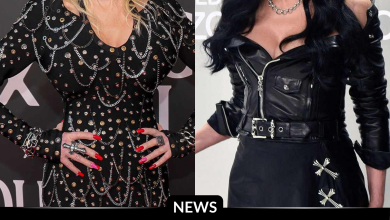How David Niven Became James Bond in a 1967 Spoof—And Why It Was All Wrong
OPINION: This article may contain commentary which reflects the author's opinion.
When authors envision their characters coming to life on screen, they often have a clear picture in their minds of who should play the lead. However, as history has shown, filmmakers sometimes have a very different interpretation of what those characters should be. One of the most notable—and ironic—examples of this mismatch comes from the world of James Bond, where Ian Fleming, the creator of 007, had a very particular vision for his iconic spy. But in the end, the actor he wanted for the role ended up playing Bond in a way he never could have imagined, and in a film that would become more of a spoof than a serious adaptation.
Fleming’s original choice for James Bond was not the suave, action-packed hero that audiences came to know, but rather the sophisticated and debonair David Niven. Niven, a British actor known for his roles in films like Mutiny on the Bounty (1935) and Wuthering Heights (1939), had all the qualities Fleming envisioned for the character—elegance, class, and an impeccable sense of style. At the time, Niven was in his fifties, far older than the thirty-something Sean Connery, who was ultimately cast in the role in 1962. Niven had the kind of cut-glass diction and polished demeanor that made him the perfect embodiment of a gentleman spy in Fleming’s eyes. However, Niven was far from the action hero that producer Albert ‘Cubby’ Broccoli envisioned.
Broccoli, who had purchased the rights to Fleming’s novels, had a very different take on Bond. He wanted an actor who could not only charm the audience but also physically embody the role, someone who could engage in high-octane action sequences, deliver witty double-entendres, and convincingly perform his own stunts. Broccoli’s ideal Bond was a man who could swim with sharks, jump off buildings, and engage in hand-to-hand combat—qualities Niven, with his age and genteel sensibilities, didn’t quite possess. This led to Broccoli casting Sean Connery, a relatively unknown Scottish actor at the time, who was younger, tougher, and perfectly suited to the physical demands of the role.
Fleming, however, had no intention of casting Connery. As detailed in Looper and other sources, Fleming was adamant that Bond should be portrayed by someone with Niven’s polished, upper-class background. The irony, however, is that Niven did eventually play Bond—but not in the way Fleming had envisioned. Instead of portraying the serious, action-driven character that Fleming had created, Niven starred in the 1967 spoof Casino Royale, a comedic take on the Bond franchise that was not even part of the official Eon Productions series.
In Casino Royale, Niven played a retired, more dignified Bond, one who was more interested in playing piano and gardening than chasing villains across the globe. This version of Bond was an entirely different take on the character—a far cry from the sleek, action-packed figure that Connery had made iconic. The film was a spoof, one that parodied the very elements of the Bond series that had made the character a household name. While it enjoyed some success due to the Bond name’s popularity at the time, Casino Royale (1967) was met with poor reviews and has largely been forgotten today.
Ironically, Niven wasn’t even the first choice for the role in Casino Royale. Producers initially approached both Sean Connery and Peter Sellers for the part before ultimately offering the role to Niven. Sellers, known for his comedic genius, appeared in a different role in the film, further cementing the film’s comedic tone. While Casino Royale was a financial hit at the time, it wasn’t the serious Bond adventure that Fleming might have hoped for. It was, in essence, a farcical take on his beloved character, one that was more focused on humor and satire than on espionage and danger.
In the end, while Niven’s Bond may have been a charming portrayal, it didn’t challenge Sean Connery’s iconic performance as the definitive 007. Niven’s take on Bond, with its light-hearted nature and older, more refined approach, never stood a chance of overshadowing Connery’s action-packed, charismatic spy. And in a tragic bit of irony, Fleming, who had hoped for a suave and dignified Bond, would never see his vision come to life. Instead, he left behind a legacy of a much tougher, more rugged interpretation of his character, a version of Bond that would go on to become one of the most iconic figures in cinematic history.
As for Niven, while his portrayal of Bond was undoubtedly entertaining, it would forever remain a comedic footnote in the franchise’s storied history—a portrayal that, ironically, became the butt of the joke rather than the action hero Fleming had originally envisioned.



